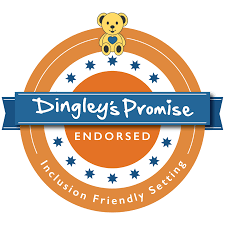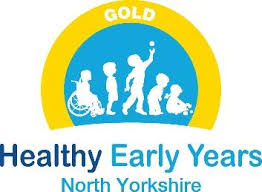RE Impact Statement
At Thirsk Community Primary School, our Religious Education curriculum aims to inspire curious, thoughtful and compassionate learners who can understand and appreciate the diverse religious and non-religious worldviews that shape our local, national and global communities. Rooted in our core values of Inclusion, Compassion and Ambition, our curriculum provides all children with rich opportunities to explore life’s big questions, develop respect for others and form their own considered responses.
Our RE curriculum follows the expectations of the North Yorkshire SACRE Locally Agreed Syllabus, ensuring pupils learn about Christianity as the principal religion of Great Britain while also studying a wide range of worldviews. We enhance this through the Kapow Primary Religion & Worldviews curriculum, which aligns closely with the national Curriculum Framework for RE and supports teachers in delivering a coherent, progressive programme of learning.
Central to our intent is our school-wide TCP approach, which develops pupils’ disciplinary thinking by enabling them to become:
Theologians, who explore beliefs, teachings and sources of wisdom.
Community Scientists, who investigate how worldviews influence the ways individuals and groups live, behave and belong.
Philosophers, who examine complex questions about meaning, identity, ethics and truth.
This framework mirrors the three core strands of the Kapow R&W curriculum:
Substantive knowledge – developing pupils’ factual and conceptual understanding of beliefs, practices, morality, community and belonging across diverse religious and non-religious worldviews.
Disciplinary knowledge – teaching pupils how to think, question and analyse like scholars of religion, philosophy and human sciences.
Personal knowledge – supporting children to recognise their own developing worldview, understand the influence of family and culture, and reflect on their assumptions and values.
We intend for RE to be a subject where thinking is made visible. Lessons emphasise oracy, with pupils regularly engaging in dialogue, debate, questioning, storytelling and presentations. Through structured talk, children learn to articulate ideas clearly, listen with empathy, challenge respectfully and build shared understanding. Oracy supports deeper learning by enabling pupils to reason aloud, explore multiple perspectives and refine their own thinking.
Our RE curriculum makes a strong contribution to pupils’ Spiritual, Moral, Social and Cultural (SMSC) development. Pupils explore beliefs about meaning, purpose and existence; reflect on ethical issues; collaborate across differences; appreciate diverse cultural and religious practices; and develop an informed moral compass. Learning in RE also actively promotes British values—democracy, rule of law, individual liberty, mutual respect and tolerance—through opportunities to debate, evaluate viewpoints, understand rights and responsibilities and consider how people live together within a pluralistic society.
In the Early Years, children begin exploring worldviews through stories, celebrations, routines and conversations. Our intent is that these early encounters build the foundations for the North Yorkshire SACRE strands, particularly through curiosity, noticing similarities and differences, and developing early language for discussing beliefs. As pupils move into KS1, these foundations are strengthened through more structured teaching while maintaining a sense of exploration and belonging.
Through a carefully sequenced, inclusive and ambitious curriculum, we aim for pupils to become reflective, respectful and knowledgeable individuals. They will leave Thirsk Community Primary School equipped with the understanding, skills and attitudes needed to participate positively in a diverse society and to navigate their own developing worldviews with confidence and compassion.
RE Implementation Statement
At Thirsk Community Primary School, Religious Education is taught through a carefully sequenced, knowledge-rich curriculum that aligns fully with the North Yorkshire SACRE Locally Agreed Syllabus. RE is delivered weekly (45 minutes in KS1 and one hour in KS2), ensuring statutory requirements are met and allowing pupils regular, meaningful opportunities to explore religions and worldviews in depth. The Kapow Primary R&W curriculum—used alongside our TCP approach—provides a coherent, progressive structure that supports high-quality subject knowledge and pedagogy.
Curriculum Structure and Lesson Design
RE lessons follow a consistent structure that supports cognitive load management, ensuring pupils can build knowledge securely over time:
- Recap and Recall revisits essential prior learning to activate long-term memory, strengthen retrieval pathways and reduce cognitive overload.
- Attention Grabbers hook pupils into new content using questions, images, stories or dilemmas that stimulate curiosity and align with our value of ambition.
- The Main Event provides carefully modelled teaching, guided practice and collaborative or independent tasks, ensuring learning remains purposeful, inclusive and accessible.
- Wrapping Up consolidates new knowledge through reflection, discussion or application, enabling pupils to articulate what they have learned and how it connects to prior learning.
Throughout each stage, teachers consider how theology, community and philosophy integrate into the lesson—ensuring the TCP approach shapes thinking, discussion and enquiry.
The TCP Approach in Practice
Every lesson develops pupils’ disciplinary knowledge by enabling them to think like:
- Theologians – exploring beliefs, teachings, sacred texts and sources of wisdom.
- Community Scientists – studying how worldviews shape behaviour, identity and belonging in communities locally, nationally and globally.
- Philosophers – examining big questions about meaning, ethics, truth, purpose and human experience.
This mirrors the North Yorkshire SACRE’s three strands—Believing, Expressing and Living—ensuring full statutory coverage while supporting deeper and more reflective enquiry.
Types of Knowledge
Lessons explicitly develop three interconnected forms of knowledge:
- Substantive knowledge – key facts, concepts and beliefs within religious and non-religious worldviews.
- Disciplinary knowledge – how we study religion: investigating, interpreting, evaluating and making reasoned arguments.
- Personal knowledge – recognising one’s own developing worldview, responding sensitively to others and reflecting on how beliefs influence life and decisions.
Knowledge organisers, recap tasks and structured vocabulary teaching help pupils build secure foundations, deepen understanding and express ideas with accuracy and confidence.
Spiral Curriculum and Progression
Our curriculum is designed as a spiral, ensuring that:
- Concepts are revisited at increasing levels of depth.
- Vocabulary and disciplinary skills grow progressively over time.
- Pupils revisit big ideas from EYFS to Year 6, connecting prior knowledge to new learning.
- All pupils—including those with SEND—can access the curriculum with appropriate scaffolding, structure and visual support.
Careful consideration of cognitive load prevents unnecessary complexity and ensures all children, particularly the most vulnerable, can achieve success.
Oracy, Dialogue and Respectful Debate
Oracy is at the heart of RE at Thirsk. Lessons include structured opportunities for:
- Discussion, debate and paired talk
- Questioning and critical thinking
- Presentations, summaries and reasoned arguments
- Role play and storytelling
- Responding to sources of wisdom, artefacts, images and texts
These opportunities reflect our school values of inclusion, compassion and ambition, enabling pupils to speak confidently, listen respectfully and understand multiple perspectives.
Inclusion, Adaptive Teaching and SEND Provision
Each lesson includes guidance for adaptive teaching to ensure all learners can access and engage in RE. This includes:
- Multi-sensory activities
- Scaffolding and sentence starters
- Chunked tasks to manage cognitive load
- Visual supports and clear routines
- Opportunities for collaborative and independent learning
- Flexible challenge for greater depth thinkers
The curriculum design ensures smooth progression across key stages, with no sudden increases in complexity.
Vocabulary and Religious Literacy
The Kapow Primary vocabulary progression ensures pupils encounter substantive, disciplinary and personal knowledge terms in a carefully planned sequence. Teachers model vocabulary receptively before expecting expressive use, allowing pupils to gain confidence and accuracy over time.
Vocabulary instruction supports pupils to:
- Describe and explain beliefs
- Compare worldviews
- Reflect on ethical issues
- Engage in respectful dialogue
- Develop religious literacy essential for life in modern Britain
SMSC, British Values and Cultural Capital
RE lessons actively promote:
- Spiritual development through reflection and exploration of meaning
- Moral development through ethical debates and consideration of right and wrong
- Social development through collaborative enquiry and community understanding
- Cultural development through learning about diverse traditions, identities and worldviews
British values—democracy, rule of law, individual liberty, mutual respect and tolerance—are woven throughout RE through debate, rights and responsibility discussions, consideration of multiple viewpoints and engagement with lived experiences.
This implementation ensures RE at Thirsk Community Primary School is academically rigorous, values-led, inclusive and aligned with all statutory expectations—including the North Yorkshire SACRE—while equipping pupils with the knowledge, skills and attitudes needed to flourish in a diverse and changing world
RE Impact Statement
The impact of the R&W curriculum at Thirsk Community Primary School is seen in the depth of pupils’ knowledge, the quality of their dialogue and reflection, and the way they demonstrate our school values of compassion, respect and ambition in their engagement with diverse worldviews. Through consistent use of the North Yorkshire SACRE strands—Believing, Expressing and Living—pupils build a secure and interconnected understanding of religious and non-religious worldviews as they move through the school.
Formative assessment is central to each lesson. The Recap and recall activity enables teachers to assess how effectively pupils have retained prior learning and whether they are ready to progress. This not only strengthens long-term memory but provides a diagnostic window into pupils’ conceptual understanding. Throughout the lesson, assessment continues through questioning, discussion and observation, supported by the Assessing progress and understanding section, which identifies pupils working securely or at greater depth. These insights are captured in the R&W assessment spreadsheet, ensuring a clear picture of progress across cohorts and year groups.
Summative assessment builds on this foundation. Each unit includes an Assessment Quiz that checks understanding of substantive, personal and disciplinary knowledge. Questions may be adapted for different cohorts so that all pupils can demonstrate learning meaningfully. The Knowledge Catcher—used at the start or end of a unit—provides a further opportunity for pupils to articulate their understanding and reflect on the concepts they have explored. Together, these assessment tools create a robust record of progression that follows pupils through their primary years and informs curriculum planning, intervention and challenge.
The impact of the curriculum is also seen in pupils' developing oracy and reasoning. Through the TCP approach—theology, community and philosophy—children learn to think critically about beliefs, appreciate the lived experiences of diverse communities and explore philosophical questions with increasing confidence. They learn to listen attentively, express their own ideas clearly and respectfully, and participate in dialogue that reflects curiosity, empathy and thoughtful challenge. This aligns closely with the expectations of the North Yorkshire syllabus, which emphasises enquiry, reflection and respectful disagreement.
Across the school, pupils develop an informed and nuanced understanding of worldviews. They come to recognise that individuals may follow a religion, multiple traditions, or none, and that each perspective has value. This contributes strongly to pupils’ SMSC development and their understanding of British values, particularly mutual respect and tolerance. Our children learn to celebrate diversity and to view differences as enriching rather than dividing, building ambition to learn about the world and compassion toward others within it.
Leaders evaluate impact holistically through pupil voice, book studies and observation of classroom dialogue. These processes reveal how well pupils can recall and apply knowledge, how thoughtfully they engage in discussion and how securely they are meeting the expectations of the North Yorkshire SACRE syllabus. This ensures that R&W remains a vibrant, rigorous and inclusive subject that inspires all children—strengthening their understanding of the world, deepening their compassion for others and nurturing their ambition to think, question and grow.



